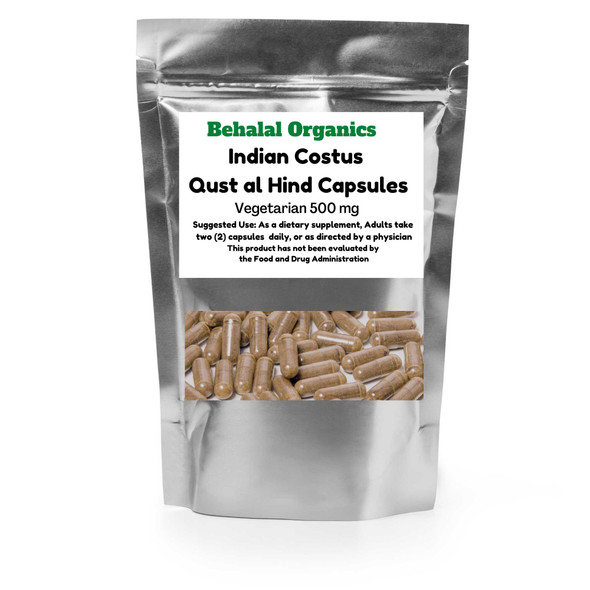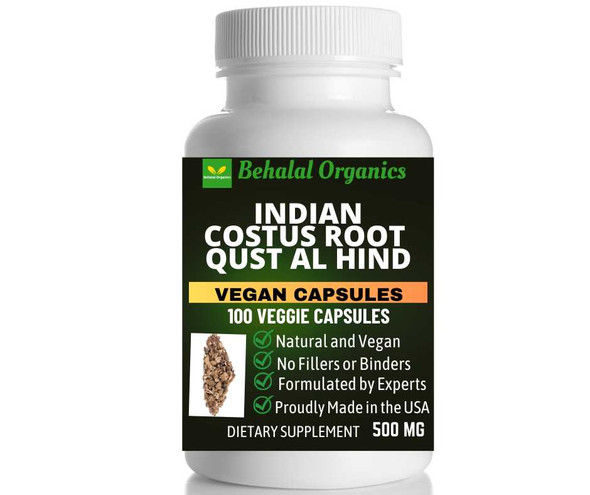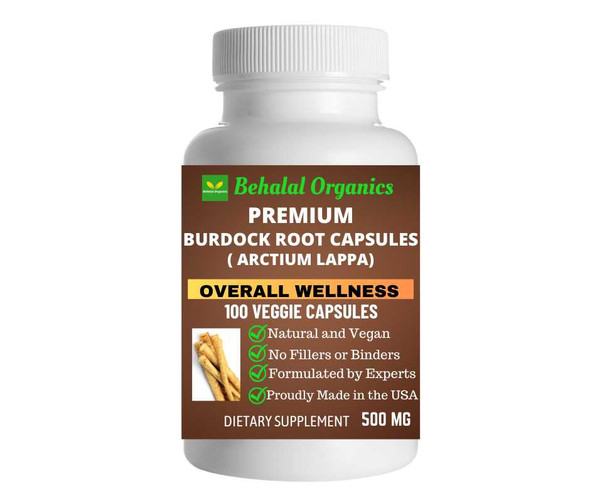Description
Experience the ancient power of Qust Al Hindi, a revered Ayurvedic botanical used for centuries across Asia, the Middle East, and Africa for natural wellness and vitality. Behalal Organics brings you premium-grade Qust Al Hindi (Indian Costus Root) in convenient 500mg quick capsules, crafted with care to deliver purity, potency, and performance in every capsule.
What is Qust Al Hindi?
Qust Al Hindi is derived from the root of the Saussurea costus plant, valued in traditional medicine systems for its warming, cleansing, and rejuvenating properties.
Other names worldwide include:
-
Indian Costus Root
-
Qust / Qist Al Hindi (Arabic & Middle Eastern regions)
-
Kuth / Kut / Kushta (India & Pakistan)
-
Mu Xiang (Traditional Chinese Medicine)
-
Pachak Kut (Ayurveda)
-
Costus Root
-
Saussurea costus
-
Aucklandia costus
-
Dolomiaea costus
Product Highlights
-
500mg per Capsule
-
100 Quick-Release Vegetarian Capsules
-
100% Pure Qust Al Hindi Root Powder
-
Zero binders, fillers, additives, or dyes
-
All-Natural & Vegetarian Formula
-
Fast shipping from the United States
-
Manufactured by Behalal Organics
-
Lab-tested for purity & quality assurance
✅ Key Benefits of Qust Al Hindi
Immune System Support
Traditionally used to strengthen immunity and support the body's natural defense mechanisms.
Respiratory Wellness
Supports easier breathing and helps maintain healthy airways—commonly used in traditional practices to promote lung health.
Digestive Health
May aid digestion, reduce bloating, and help relieve discomfort associated with gas and sluggish digestion.
Circulation & Detox Support
Known in traditional herbal medicine for its ability to help support natural detoxification pathways and healthy blood circulation.
Enthusiasm & Aphrodisiac Benefits
Qust Al Hindi has long been regarded as a natural aphrodisiac, traditionally used to:
-
Increase vitality and energy
-
Support libido and sexual wellness
-
Promote reproductive health and stamina
-
Enhance overall body strength and endurance
⚖ Metabolic Balance
May help regulate the internal body system and promote balance in metabolism and general wellness.
Suggested Use
Take 2–3 capsules daily with water, preferably after meals or as directed by your healthcare provider.
⚠ Health Disclaimer
This product is a dietary herbal supplement and is not intended to diagnose, treat, cure, or prevent any disease. Statements about this product have not been evaluated by the FDA.
If you are pregnant, nursing, taking medications, or have a medical condition, consult a licensed healthcare professional before use.
Discontinue use if any adverse reaction occurs.
Why Choose Behalal Organics?
At Behalal Organics, we prioritize:
-
Ingredient purity
-
Ethical sourcing
-
Quality manufacturing standards
-
Transparency and customer satisfaction
Our Qust Al Hindi capsules are produced with strict quality control to ensure every bottle meets our commitment to excellence.
Revive your body naturally with the time-tested power of Qust Al Hindi.
Order today and experience a botanical tradition trusted for centuries—now available in easy-to-take capsules by Behalal Organics.






























